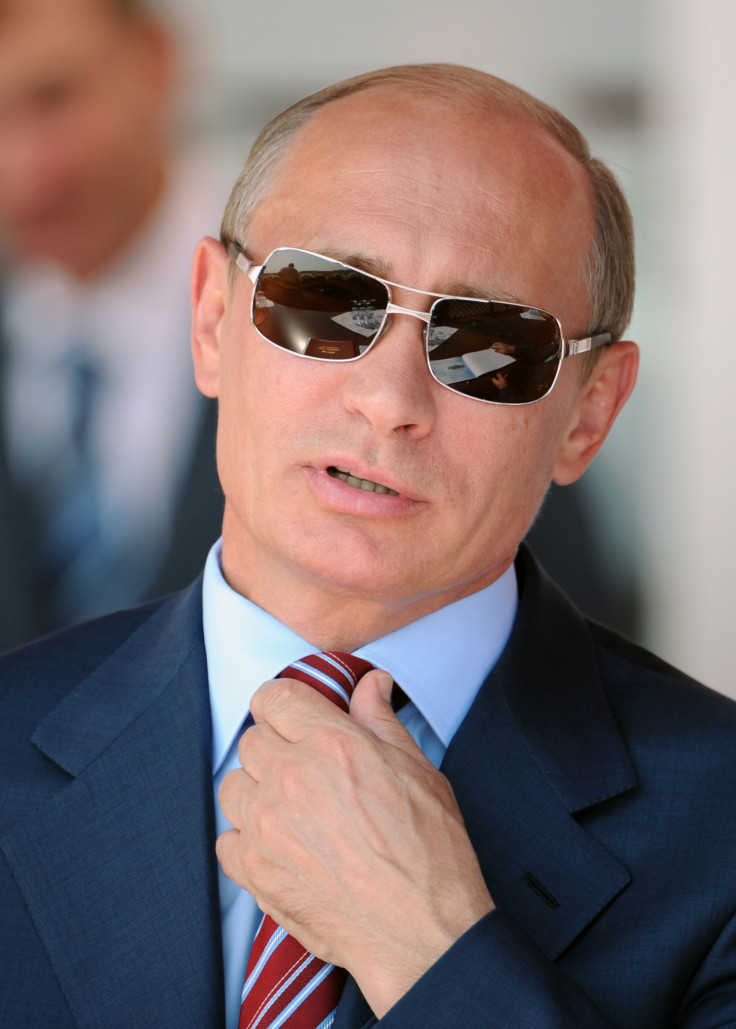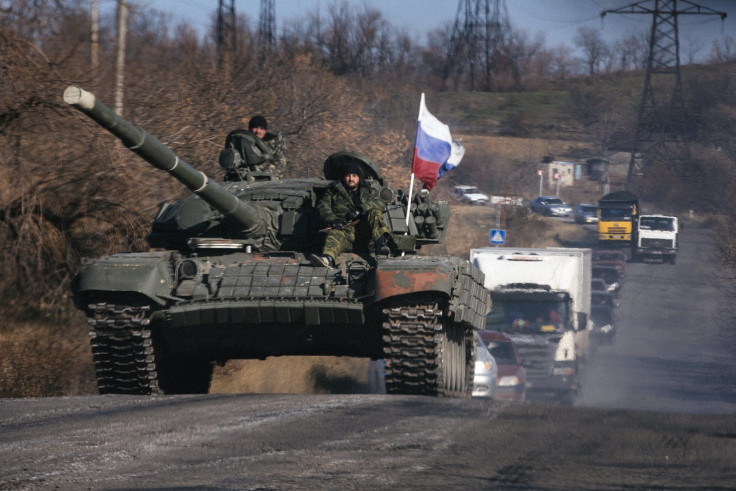Giving Russia the top job at the UN is an Orwellian nightmare and a betrayal of global peace efforts

It could be a story written by Ray Bradbury or George Orwell. Or the basis for a fantasy book by Michel Houellebecq. But this story is not an illusion, nor a nightmare. It is not a joke – it is reality.
The source of numerous wars and conflicts is taking over what is supposed to be the source of diplomacy and peace: The Russian Federation is taking over the presidency of the United Nations Security Council (UNSC).
The UNSC is one of the six principal organs of the UN that is in charge of maintaining international peace, accepting new members and approving any changes to the UN charter. The presidency moves from one country in alphabetic order. So Nigeria, who took the chair in August, passed the baton to Russia this September.
For this reason, the UNSC is hitting the headlines in both the Western and Russian media in recent days. The former is questioning and suspecting Russia, the latter seeking to explain to Russians what the power that their government has been given actually means.
Russian newspaper Russkaya Planeta (Russian Planet) informed its readers through a suggestive hint – a common method of communication by the media in Putin's Russia – that the president of the UN Security Council "has the power to decide to send military troops in any conflict zone or to announce sanctions against one or another state that is responsible for any conflict".
But even prior to this appointment, Russia has already shown its attitude to the UNSC and its willingness to use the power it possesses as a permanent member of the council. A few weeks ago, Russia used its veto to block the UN resolution to recognize the Srebrenica massacre in Bosnia as a genocide.
Russia is not following the rules and the mission of the UN but is rather attempting to establish its own rules and use the UN serve its own interests. It is not only that Russia should lose its right to veto but moreover its place in the Security Council as any other country which policy breeds violence, oppression and blood.
Following this, Russia's representative at the UN, Vitalyi Churkin, declared another veto on a proposal by Malaysia for an international tribunal that would investigate the tragedy of the MH17 Malaysia Airlines, which was shot down while flying over an area occupied by Russia-backed separatists near Donetsk, Ukraine, on 17 July 2014, killing all 298 passengers.
During the voting, 11 of the 15 UN members voted in favour while China, Venezuela and Angola abstained. Even though the criminal responsibility for such a crime has no expiration term, by using its veto Russia blocked any chance for the investigation to make progress and therefore any punishment for the persons responsible for this tragedy. Russia clearly had its reasons.
The move outraged both the UN and international public opinion. Samantha Power, the representative of the US at the UN argued that Russia has ignored the outrage of the countries that were hurt by this tragedy. Australia's minister of international affairs Julie Bishop said "the anticipated excuses and obfuscation by the Russian Federation should be treated with the utmost disdain".
She stressed that if Russia has nothing to hide about the tragedy, it shouldn't have vetoed the resolution.
On 1 September when Russia took the presidency of the UNSC, France launched an initiative to persuade the other four Security Council permanent members, Britain, China, Russia and the United States, to refrain from using their veto when action is required to address a mass atrocity.
This proposal was received positively especially among critics that consider the council undemocratic as it only grants veto power to five of its members. But Russia, unsurprisingly, blocked the motion, dismissing it as "populist". "We are against it," UN Russia Ambassador Churkin told reporters.
"We think this is not a workable proposition. If France wants to limit its own veto right they are welcome to do it", he said.
During the press conference marking the beginning of the Russian presidency at the UNSC on September 2, Churkin argued that the UNSC veto right is a crucial balance tool "to avoid disasters" and stressed that that every resolution proposed by the UNSC is necessarily a good one: "What if the resolution says that we are going ahead to occupy a country and bomb them to the Stone Age?" he said, probably not appreciating the irony given Russia's actions in Ukraine.
During the first working days at the presidency of UNSC, Russia has successfully blocked any attempt to find culprits and to stop the conflicts in Ukraine as well as in Syria by attacking US military action and openly protecting Putin's ally Bashar al-Assad from the consequences of his bloody policy.
Russia blocked the resolution for the investigation over the usage of chemical weapons by the Syrian regime, demanding more "written details" on the procedure. Churkin spoke about the necessity of the international coalition against Islamic State in Syria but not Assad. "They bomb the Syrian territory without the consent of the Syrian government. We believe that clearly the priority now is to fight ISIL but they cannot make their choice between fighting the Syrian government and ISIL", he said.

I wish that this was a dystopian story by George Orwell but it is not, it is reality. If in the first two days of leading the UN Security Council, Russia can do so much to halt peace, then the rest of the month does not bode well: September will be a difficult time for the UN's peace making. On September 30, the UNSC will hold the important summit on the fight against terrorism that has been prepared and initiated a year ago by France.
We can predict that Russia will use all opportunities to prevent progress in anti-terrorist activities and military conflicts, simply because they will use all opportunities to prevent the international community from bringing it to justice for its crimes. Ukrainian minister of international affairs Pavlo Klimkin called September "a dark month" and predicted that Russia will eventually lose its right to veto.
"It is impossible that one country blocks the opinion of the international community, especially about the conflicts that are the direct responsibility of this country," said Klimkin.
It is not too early to claim that the month of Russia's presidency of the UNSC will be damaging for attempts to stop conflicts that are the cause of migration, suffering and millions of deaths. To let the UN Security Council into the hands of a state that feeds military conflicts is an outrageous betrayal of the organisation's mission to maintain peace.
Russia is not following the rules and the mission of the UN but is rather attempting to establish its own rules and use the UN to serve its own interests. It is not only that Russia should lose its right to veto but moreover its place in the Security Council as any other country which policy breeds violence, oppression and blood.
You don't ask to make peace from those who only want to make war.
Inna Shevchenko is leader of the feminist protest group FEMEN, which often makes headline news across the world for demonstrating topless. Visit the Femen website or Twitter feed, or Inna's personal Twitter account, to find out more.
© Copyright IBTimes 2025. All rights reserved.






















